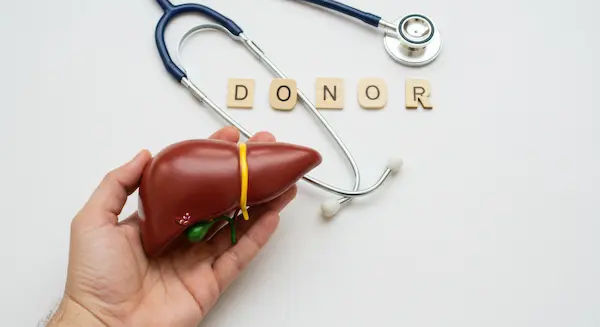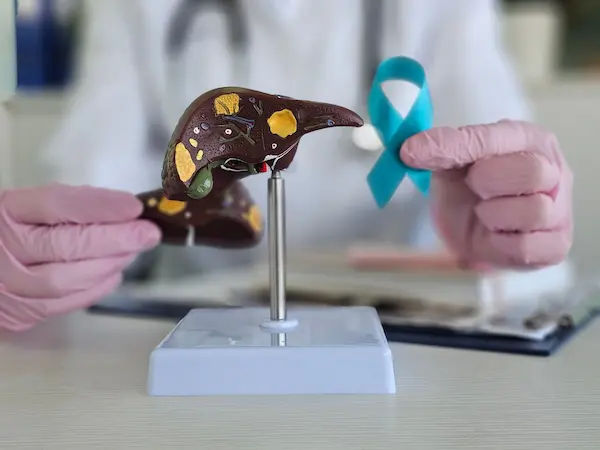Liver Health Foods: What to Eat and What to Avoid
Learn what to eat and what to avoid for a healthy liver. Discover dietary tips for maintaining optimal liver function.

Written by
Last updated on 3rd Jul, 2025
Introduction
The liver performs over 500 essential functions in your body. It helps digest food, produces important proteins for your blood, and filters out toxins and waste — just to name a few. Because of all the crucial work it does, it’s important to take care of your liver. One of the best ways to support liver health is through your diet, whether your liver is healthy or you're managing a condition like fatty liver or cirrhosis. In this article, we’ll highlight some of the best foods to help protect your liver, aid in its recovery if it's been damaged, and also discuss what to avoid to prevent further strain on this vital organ.
1. Cruciferous Vegetables
Cruciferous vegetables, such as broccoli, cauliflower, Brussels sprouts, and mustard greens, are excellent for liver health. They are high in fiber, which supports liver function and helps remove toxins from the body. Additionally, these vegetables contain antioxidants and phytochemicals that may help prevent liver cancer.
Broccoli and Brussels Sprouts: Rich in glucosinolates, these compounds boost the liver's detoxification enzymes and protect liver cells from damage.
Cauliflower: Contains choline, a nutrient essential for fat metabolism and liver health.
Mustard Greens: High in vitamin C and other antioxidants that support liver function.
2. Berries
Berries, such as blueberries, strawberries, and raspberries, are packed with fiber and antioxidants, including anthocyanins. These powerful antioxidants help reduce liver damage and may slow the growth of cancerous liver cells. Studies in test tubes and on animals have shown promising results, although more research is needed to confirm these benefits in humans.
Blueberries: High in polyphenols, which have anti-inflammatory and antioxidant effects that protect the liver.
Strawberries: Contain ellagic acid, which may help reduce liver inflammation.
Raspberries: Rich in fiber, which aids in digestion and liver health.
3. Grapes
Grapes, especially red and purple varieties, contain an antioxidant called resveratrol. Resveratrol may help prevent further liver damage in people with nonalcoholic fatty liver disease (NAFLD). Studies suggest that resveratrol supplements made from grape extract can reduce liver inflammation and oxidative stress.
Red Grapes: High in anthocyanins and resveratrol, which have protective effects on the liver.
Grape Juice: May help improve liver enzyme levels and reduce inflammation.
4. Nuts
Nuts are rich in healthy unsaturated fats, which are beneficial for liver health. They are also a great source of antioxidants, vitamins, and minerals. Studies have shown that diets with a higher intake of nuts are associated with a decreased risk of NAFLD.
Walnuts: Contain high levels of omega-3 fatty acids, which reduce inflammation and support liver health.
Almonds: Rich in vitamin E, which has antioxidant properties that protect liver cells from damage.
5. Beans and Legumes
Beans, lentils, and chickpeas are excellent sources of plant-based protein and fiber. The American Liver Foundation recommends reducing saturated fat and red meat intake, making beans a great alternative. They are low in saturated fat and high in fiber, promoting liver health.
Lentils: Packed with fiber and essential nutrients like folate, which support liver function.
Chickpeas: Provide protein and fiber, making them a heart-healthy and liver-friendly food.
6. Fatty Fish
Fatty fish, such as salmon, mackerel, and trout, are rich in omega-3 fatty acids. NAFLD is often linked to diets high in omega-6 fats and low in omega-3 fats. Increasing omega-3 intake can help balance this ratio and slow the progression of NAFLD.
Salmon: High in omega-3s, which reduce inflammation and support liver health.
Mackerel: Provides essential fatty acids that promote liver function.
7. Coffee
Coffee has anti-inflammatory and antioxidant properties, making it beneficial for liver health. Both decaf and caffeinated coffee can be protective. Studies suggest that coffee’s diterpenes may aid in detoxifying the liver and provide benefits for people with liver fibrosis and cirrhosis.
Caffeinated Coffee: Helps reduce the risk of liver diseases such as cirrhosis and liver cancer.
Decaffeinated Coffee: Offers similar benefits without the caffeine.
8. Tea
Green tea is particularly beneficial for liver health due to its high content of catechins, compounds with antioxidant and anti-inflammatory effects. Studies show that these compounds can help lower the risk of NAFLD and prevent liver cancer. However, it's best to consume green tea rather than supplements, as high doses of green tea extract have been linked to liver damage.
Green Tea: High in catechins, which protect liver cells and improve liver enzyme levels.
Black Tea: Also contains antioxidants, but in lower quantities than green tea.
9. Olive Oil
Olive oil is rich in monounsaturated fatty acids (MUFAs) and phenolic compounds, known for their heart-healthy and anti-inflammatory properties. Studies have shown that olive oil consumption can improve liver health, particularly in people with NAFLD.
Extra Virgin Olive Oil: Contains the highest levels of antioxidants and anti-inflammatory compounds.
Regular Olive Oil: Still beneficial but with slightly lower antioxidant levels.
10. Prickly Pear
Prickly pear, a type of cactus with edible fruit, has shown promising results in animal studies for its liver-protective effects. Feeding prickly pear to rats reduced the likelihood of developing fatty liver and mitigated liver damage from alcohol. While more research is needed in humans, the initial findings are encouraging.
Prickly Pear Juice: May help protect liver cells from damage and reduce inflammation.
Prickly Pear Fruit: Contains antioxidants and anti-inflammatory compounds beneficial for liver health.
11. Grapefruit
Grapefruit contains an antioxidant called naringin, which has been shown to protect liver cells from alcohol-induced damage in lab studies. Although more research is needed to confirm these benefits in humans, grapefruit remains a nutritious addition to a liver-healthy diet.
Grapefruit Juice: Provides naringin, which supports liver health and detoxification.
Whole Grapefruit: Offers fiber and antioxidants that promote overall health.
Foods to Avoid for Better Liver Health
While incorporating liver-friendly foods into your diet is essential, it’s equally important to avoid certain foods that can harm the liver. The following foods are associated with an increased risk of fatty liver and other liver diseases:
Fast Food: High in unhealthy fats, sugar, and salt, fast food can contribute to liver damage.
Ultra-Processed Foods: Contain chemicals and additives that burden the liver's detoxification processes.
Sweetened Foods: Added sugars can lead to fat buildup in the liver, increasing the risk of NAFLD.
Sugary Drinks: Beverages like soda, sports drinks, and fruit juices with added sugars are detrimental to liver health.
Artificial Sweeteners: Found in diet foods and drinks, artificial sweeteners like aspartame, sucralose, and saccharin can stress the liver.
Refined Grains: Foods made with white or all-purpose flour lack fiber and can negatively impact liver health. Opt for whole grains instead.
Red Meat and Processed Meat: High in saturated fat, these meats can increase the risk of liver disease and other health issues.
Alcohol: Excessive alcohol consumption is a leading cause of liver damage. Limit intake to protect liver health.
General Tips for a Liver-Healthy Diet
In addition to including liver-friendly foods in your diet, follow these general guidelines to maintain optimal liver health:
Eat More Fiber: Foods high in fiber, such as vegetables, beans, and nuts, support liver function and overall health.
Choose Healthy Fats: Opt for unsaturated fats like those found in olive oil, nuts, and fatty fish over saturated and trans fats.
Stay Hydrated: Drink plenty of water to keep your liver functioning properly and prevent dehydration.
Limit Added Sugars: Reduce consumption of foods and drinks with added sugars to protect liver health.
Exercise Regularly: Physical activity supports overall health and helps maintain a healthy weight, reducing the risk of fatty liver disease.
Conclusion
The liver plays a pivotal role in maintaining overall health by performing numerous essential functions, including detoxification, metabolism, and nutrient storage. To keep your liver in peak condition, it's vital to adopt a balanced diet rich in fiber, healthy fats, and antioxidants. Foods such as berries, cruciferous vegetables, nuts, fatty fish, and olive oil, along with beverages like coffee and green tea, can significantly support liver health.
Equally important is avoiding foods that can harm the liver, such as processed foods, sugary drinks, and excessive alcohol. By making informed dietary choices and incorporating liver-friendly foods into your daily routine, you can help protect and support your liver's health and ensure it continues to perform its vital functions effectively.
Consult Top Hepatologists
Consult Top Hepatologists

Dr. Srinivasa Reddy
Hepatologist
12 Years • MBBS, MD (General Medicine), DM (Hepatology),ASGE
Hyderabad
Myra Liver & Gastro Care, Hyderabad

Dr. E Prabhakar Sastry
General Physician/ Internal Medicine Specialist
40 Years • MD(Internal Medicine)
Manikonda Jagir
Apollo Clinic, Manikonda, Manikonda Jagir
(125+ Patients)

Dr. Sushith C
General Physician
2 Years • MBBS
Bengaluru
PRESTIGE SHANTHINIKETAN - SOCIETY CLINIC, Bengaluru

Dr. Pukhraj Singh Jeji
Gastroenterology/gi Medicine Specialist
13 Years • MBBS, MD ( Internal Medicine ), DM ( Gastroenterology ), Consultant - Gastroenterology
Bhubaneswar
Apollo Hospitals Old Sainik School Road, Bhubaneswar

Dr U V U Vamsidhar Reddy
Hepatologist
10 Years • MBBS, MD (JIPMER), DM (Hepatology, PGIMER)
Chennai
Apollo Hospitals Greams Road, Chennai
(100+ Patients)


.webp)
